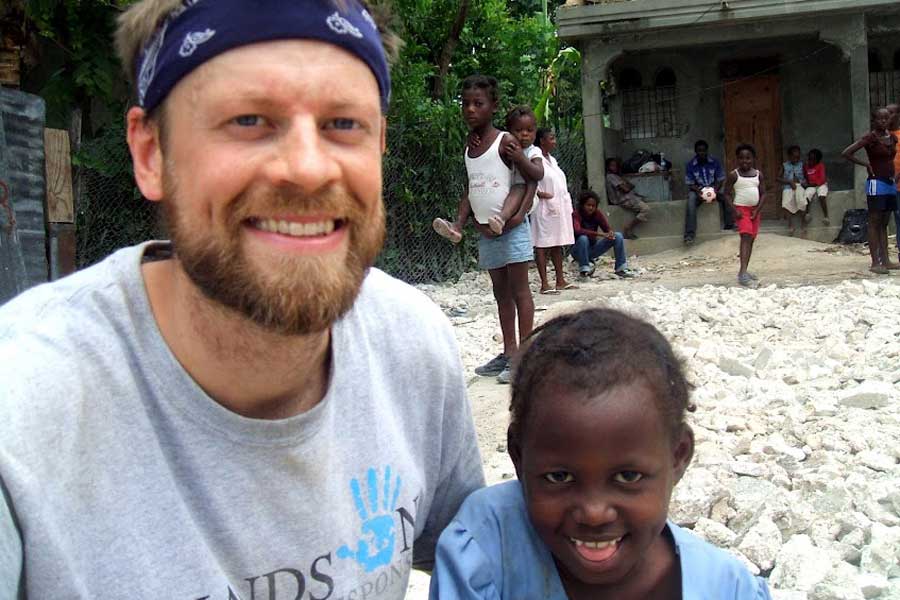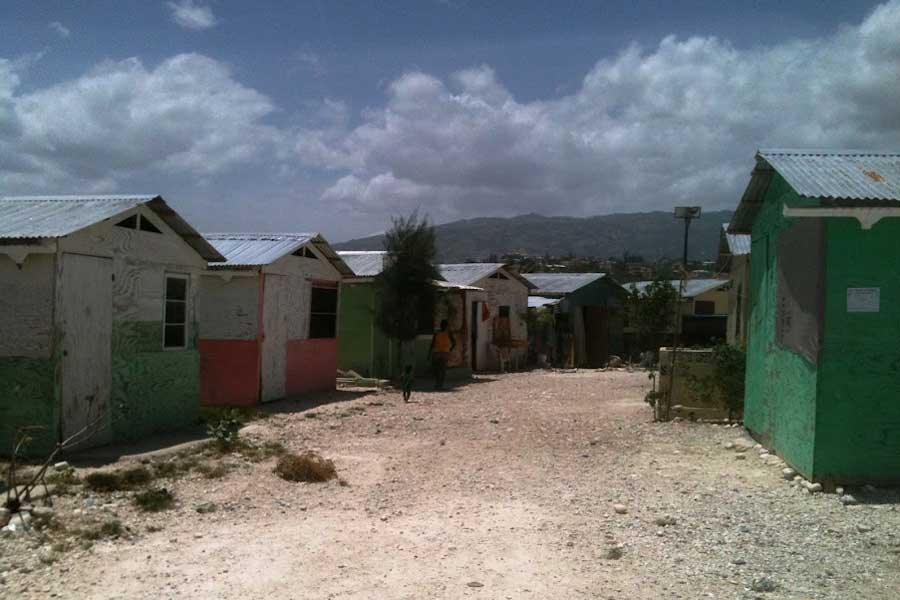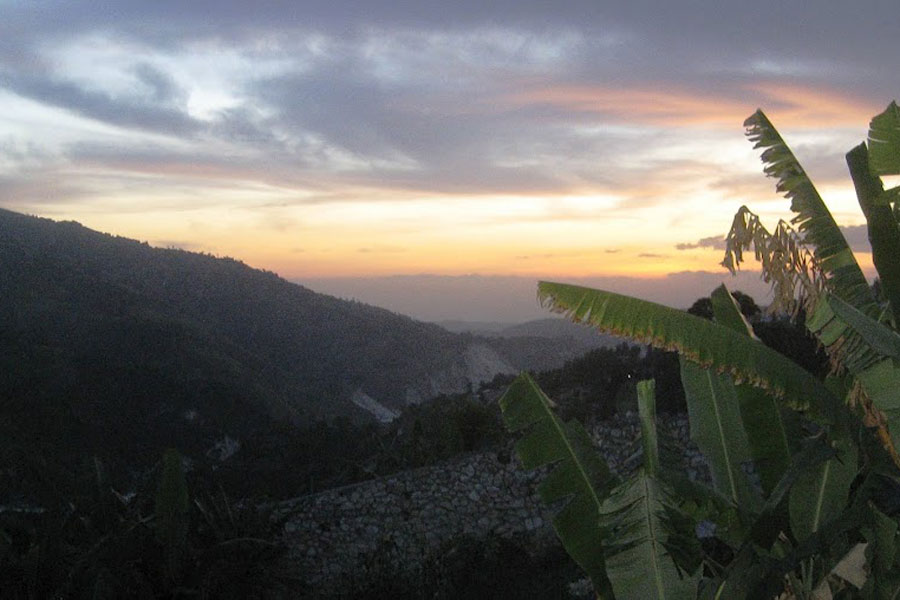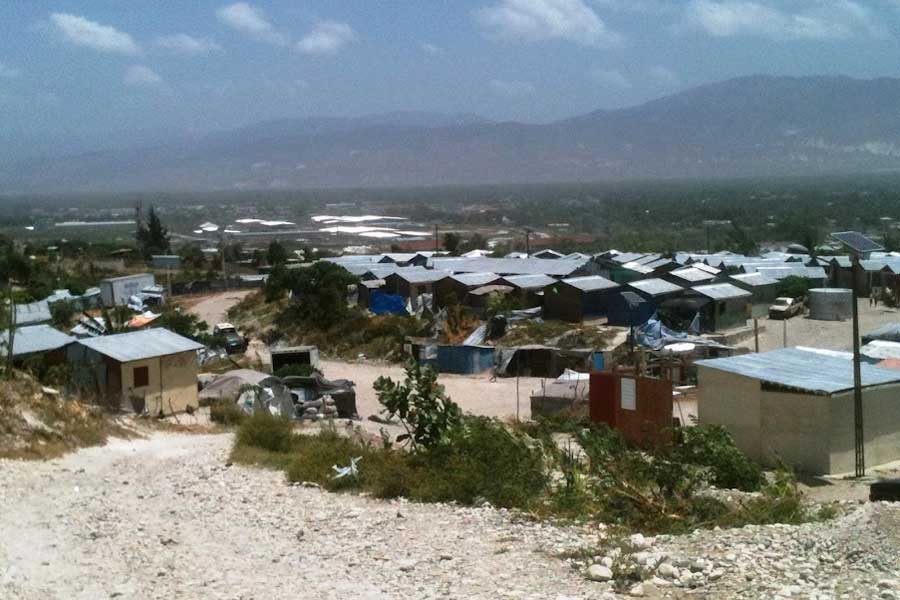

Venture Boldly

Office of Communications
2 East South Street
Galesburg, IL 61401


Knox College faculty member Daniel Beers volunteered in Haiti shortly after that country's devastating 2010 earthquake, which displaced more than 1 million people from their homes. Nearly three years later, hundreds of thousands of Haitians still lack long-term shelter.
Beers, assistant professor of political science, wants to know why.
For his latest research project, he spent six weeks in Haiti during summer 2012, interviewing people who have been working to ease the plight of Haiti's "IDPs" -- internally displaced persons. Beers also took lessons in Creole, one of the main languages spoken in Haiti.
Funding support for Beers' project came from an Andrew W. Mellon Foundation award to Knox College for faculty research, scholarship, and professional development.
"What I'm specifically interested in is the response of the international community -- non-governmental organizations (NGOs), foreign governments, the United Nations -- and how they've been working to address this problem and why the problem has proven to be so intractable," said Beers, a member of the Knox faculty since 2010.
Using an "institutional analysis" approach, he spoke with IDP camp residents, Haitian government officials, and representatives from a wide range of organizations that are providing aid in Haiti. They included the International Organization for Migration (IOM), the United Nations Office for Project Services (UNOPS), and Catholic Relief Services.
"I wanted to talk to as many different ‘actors' in this policy sphere as possible -- to understand their goals, the obstacles they were facing, their constraints, their resources, and how it all fit together to explain the decisions they made," he added.
Through those conversations, he learned that Haiti's chronically weak government posed a significant problem because it didn't effectively oversee the various relief efforts. As a result, different aid organizations sometimes duplicated services or worked at cross-purposes, Beers said.
In effect, he said, the aid organizations wound up trying to act as a surrogate for the government, but NGOs and other international groups have a different relationship with Haitian citizens than the government has. The international groups must respond to their own incentives and constraints.



"They need to meet the expectations of external donors who want to see tangible results," Beers added. "At the same time, they have very little political authority to make difficult policy decisions and a much shorter time horizon for achieving their goals. What that ultimately means is that they end up doing what they can with limited time and resources, rather than what is in the long-term interests of the Haitian populace."
The solutions tend to be temporary fixes, "instead of coherent forward-looking policies that could really improve the long-term housing problem in Haiti," he said.
Beers believes his field research in Haiti will enhance his classroom teaching at Knox. His Politics of International Development course, for example, included a final class project last year that analyzed Haiti's IDP situation from multiple viewpoints.
Students broke up into small groups -- representing human rights organizations, non-governmental organizations, the Haitian government, IDP camp residents, and Haitian landowners who want the camps cleared so they can commercially develop their property.
"They all had to propose a policy for resolving the crisis, from the perspective of their interests," Beers said. "Ultimately, we brought it all together and tried to come up with some kind of compromise agreement that would address everybody's concerns."
"The point was to appreciate the complexity of those situations and recognize that when policymakers make choices about how they're going to help in places like this, they have to weigh different issues and make tradeoffs."
The project will be even better for this year's students, Beers said, because he can share much of what he learned during the summer. Conducting field research and talking with decision-makers in Haiti provides "a richness of knowledge" to supplement the theoretical concepts that are discussed in class, he added.
"I think that the more I do this kind of work, I understand the issues much better and can offer stories and examples to help the students understand better."
Published on September 12, 2012